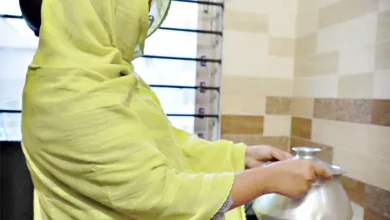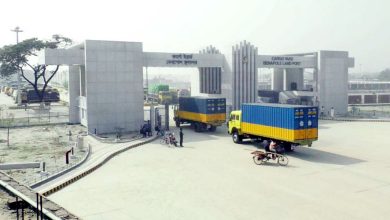Chinese Sinovac scraps Tk5,000cr investment, cites approval delay
A senior Sinovac official told The Business Standard that the company pulled out due to delays in project approval. However, other sources said the company withdrew its project due to a lack of legal framework in Bangladesh to support such a venture and competition from two other local companies that were permitted to produce plasma-based medicines.

Sinovac Biotech, a Chinese biopharmaceutical company that had developed a Covid-19 vaccine, has decided to abandon its Tk5,000 crore investment project in Bangladesh to set up a plant and produce plasma-derived medicines and vaccines. The company took the decision after about a year of wait for approval.
A senior Sinovac official told that the company pulled out due to delays in project approval. However, other sources said the company withdrew its project due to a lack of legal framework in Bangladesh to support such a venture and competition from two other local companies that were permitted to produce plasma-based medicines.
This was to be the largest foreign investment in Bangladesh’s health sector in recent years.
Multiple sources of the company confirmed, Sinovac has vacated its Gulshan office in the capital and laid off 40 employees without prior notice while 20 others were given notices in September. It also closed 21 of its plasma centres and abandoned its land acquisition deal with the Meghna Economic Zone for setting up the plant.
After getting initial approval a year ago, Sinovac planned to set up a biotech medicine plant in the Meghna Economic Zone and collect about 15,000 tonnes of plasma annually to produce about eight types of medicines, according to the Bangladesh Investment Development Authority (Bida).
The company had already set up 22 plasma collection centres across Bangladesh and had plans for more centres. It also employed 60 and planned to employ over 1,000 more.

Plasma-derived medicines are produced from human plasma – the liquid part of blood that contains proteins, antibodies, and other essential elements. Plasma-derived medicines are used to treat a variety of life-threatening diseases, such as immunodeficiency, autoimmune diseases, Covid-19, influenza, HIV, and cancer.
The government’s foreign investment authorities were shocked by the development.
Mohsina Yasmin, executive member (International Investment Promotion) at Bida, “We have not heard about the layoff or Sinovac’s plan to abandon its investment in the country.”
She said the company cannot operate under the country’s existing laws but the government is working on a new policy to allow plasma-based medicine manufacturing in Bangladesh.
“Despite all initiatives, if they [Sinovac] laid off local workers, it will be surprising,” Yasmin added.
“It has been over one year, and we are still waiting for project approval from Bangladesh authorities. Without approval…to continue this project means more spending.”
By Ning (Betty) Li, Chief Business Director, Sinovac Biotech (Bangladesh) Ltd
Ning (Betty) Li, chief business director at Sinovac Biotech (Bangladesh) Ltd, said, “It has been over one year, and we are still waiting for project approval from Bangladesh authorities. Without approval, we have nothing to do. To continue this project means more spending. But we have reported to the Bangladeshi authorities concerned about all the steps we have taken so far. They know everything.”
Ning Li declined to comment further on the matter.
Currently, Bangladesh has to import all of its plasma-derived medicines, which is costly and import takes time.
Sources in the health sector said the government has granted permission to two other local companies, including state-owned Essential Drugs Company Limited, to establish biotech plants for plasma-based drugs and vaccines in Bangladesh. Sinovac is hesitant to compete with these established companies, fearing financial losses due to market saturation. Consequently, the company has decided to withdraw its investment from Bangladesh.
Mohsina Yasmin of Bida, said three top officials of Sinovac have already received three work permit visas from the government. According to the rules, 20 local people can be employed under each visa issued to foreign investors.
“If Sinovac wants to withdraw its investment, the work permit visa issued to them will be cancelled,” she said.
When asked about the lack of policy support for plasma-based medicine production, a director of the Directorate General of Health Services, on condition of anonymity, told TBS that the government is working to develop a legal policy to allow three companies, Sinovac and two other local firms, setting up plants.
“I have heard that the Chinese company [Sinovac] has laid off its workforce, closed its offices and closed its plasma collection centres. I do not know why they are doing it but they may have other reasons to divert investment from Bangladesh,” he said.
Sinovac received initial approval for this investment in mid-2022 and subsequently established a permanent office in Dhaka’s Gulshan district. The company also initiated the process of setting up plasma collection centres and secured a land acquisition agreement with the Meghna Economic Zone for the construction of its manufacturing plant.
Professor Dr Md Ashadul Islam, chairman of the Department of Transfusion Medicine at Bangabandhu Sheikh Mujib Medical University (BSMMU), told TBS that any company can initiate commercial production of plasma-derived medicines, but thorough research and assessment are essential prerequisites. Additionally, adherence to existing laws is mandatory.
“I am unaware of the discussions between the Chinese company and the Directorate General of Health Services. However, if there is no legal framework in place, implementing such a project is not feasible. The government has the authority to address this legal issue if it so desires. I am not familiar with the current status of this matter,” he said.
The potential for producing plasma-derived medicines in Bangladesh holds immense benefits for the country, the professor added.
According to drug importers, Bangladesh imports Tk2,500 crore worth of plasma-derived medicines every year.





